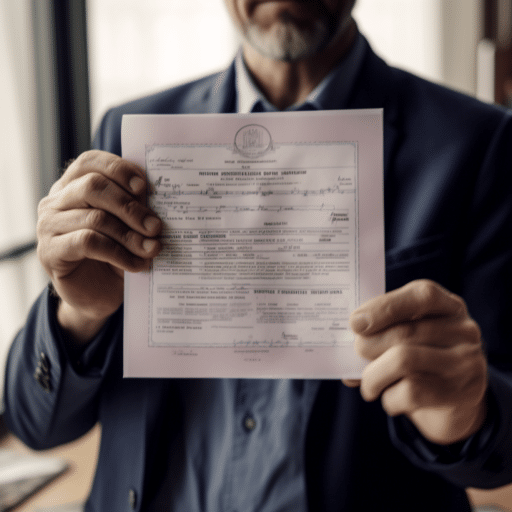Business in Dubai is an exciting and potentially lucrative opportunity for entrepreneurs and investors around the world.
With its rapidly growing economy, strategic location, and pro-business policies, Dubai has become one of the most attractive destinations for setting up a business.
However, starting a business in a foreign country can be challenging, especially if you are not familiar with the local laws, regulations, and cultural norms.
That’s why it’s crucial to have a good understanding of the steps involved in setting up a business in Dubai, as well as the common pitfalls to avoid.
The purpose of this blog is to provide a comprehensive guide to starting a business in Dubai.
If you want to invest as an expat or high-net-worth individual, which is what I specialize in, you can email me (advice@adamfayed.com) or use WhatsApp (+44-7393-450-837).
This article is here merely for informational purposes. Reading this article shouldn’t influence your decision about whether to buy or not, and some of the facts written here might have changed since we first wrote it.
What are the main steps involved in setting up a business in Dubai?
Sure, here are the eight main steps involved in setting up a business in Dubai:
Determine the business activity
Before starting a business in Dubai, it’s essential to determine the type of activity your business will be involved in. This step will help you identify the appropriate legal structure and obtain the necessary permits and licenses.
Choose a legal structure
The legal structure you choose will depend on various factors such as the type of business activity, ownership structure, and liability considerations. Common legal structures in Dubai include a sole proprietorship, partnership, limited liability company (LLC), and branch office.
Reserve a trade name
Once you have chosen a legal structure, you need to reserve a trade name for your business. This name must be unique and comply with the guidelines set by the Department of Economic Development (DED).
Obtain initial approval
To proceed with the business setup process, you need to obtain initial approval from the DED or the relevant free zone authority. This approval confirms that your business activity complies with the local regulations.
Obtain a local sponsor
Non-UAE nationals must have a local sponsor or service agent to start a business in Dubai. The local sponsor can be an individual or a company and is responsible for liaising with the government authorities on behalf of the foreign investor.
Lease an office space
To obtain a business license in Dubai, you must have a physical office space. This can be a commercial space or a virtual office, depending on your business activity.
Obtain licenses and permits
Once you have completed the above steps, you need to obtain the necessary licenses and permits to start your business operations. The type of licenses and permits required will depend on your business activity, location, and legal structure.
Register for visas
Finally, you need to register for the necessary visas for your employees and dependents. This includes work permits, residency visas, and investor visas, depending on your business structure and requirements.

There are several business structures available in Dubai, each with its own unique characteristics and legal requirements.
What kind of business structures are available in Dubai?
There are several business structures available in Dubai, each with its own unique characteristics and legal requirements.
Each structure has its own advantages and disadvantages, and the choice of structure will depend on the nature of your business, ownership structure, and liability considerations. Here are some of the most common structures:
Sole proprietorship
A sole proprietorship is a business owned and operated by one individual. This structure is ideal for small businesses and startups that don’t require a lot of capital or have limited liability concerns. In this structure, the owner is personally liable for the debts and obligations of the business.
Partnership
A partnership is a business structure that involves two or more individuals who share ownership and responsibility for the business. There are two types of partnerships in Dubai: general partnerships and limited partnerships. In a general partnership, all partners share equal liability for the debts and obligations of the business. In a limited partnership, there is at least one general partner who is personally liable and one or more limited partners who have limited liability.
Limited liability company (LLC)
An LLC is a popular business structure in Dubai and is suitable for small to medium-sized businesses. In this structure, the company is a separate legal entity from its owners, providing limited liability protection to its shareholders. The minimum number of shareholders for an LLC is two, and the maximum is 50.
Free zone company
A free zone company is a business that operates within a designated free zone area in Dubai. These areas are governed by separate rules and regulations, providing a more flexible and business-friendly environment for foreign investors. A free zone company can be a sole proprietorship, partnership, or LLC.
Branch office
A branch office is an extension of a foreign company in Dubai. This structure allows foreign companies to conduct business in Dubai without the need to establish a separate legal entity. The branch office is fully owned by the foreign company and is subject to the regulations of the Dubai government.
What are the legal requirements for starting a business in Dubai?
The legal requirements for starting a business in Dubai can vary depending on the type of business activity, legal structure, and location. However, here are some of the general legal requirements that you need to consider when starting a business in Dubai:
Business License
All businesses in Dubai must obtain a license from the Department of Economic Development (DED) or the relevant free zone authority. The license will depend on the type of business activity and legal structure.
Trade Name Registration
You need to register a trade name for your business, which should comply with the guidelines set by the DED.
Local Sponsorship
If you are a foreign national, you need to have a local sponsor or service agent to start a business in Dubai. The local sponsor can be an individual or a company and is responsible for liaising with the government authorities on behalf of the foreign investor.
Legal Structure
You need to choose a legal structure for your business, such as a sole proprietorship, partnership, LLC, free zone company, or branch office. Each legal structure has its own requirements and regulations.
Office Space
To obtain a business license, you must have a physical office space. This can be a commercial space or a virtual office, depending on your business activity.
Visa Requirements
You need to comply with the visa requirements for your employees and dependents. This includes work permits, residency visas, and investor visas, depending on your business structure and requirements.
Taxation
Dubai has a favorable tax regime, with no personal income tax or corporate tax. However, some businesses may be subject to certain taxes, such as VAT and customs duties.
How long does it typically take to set up a business in Dubai?
The time it takes to set up a business in Dubai can vary depending on various factors, such as the legal structure, business activity, location, and the efficiency of the registration process. However, here is a general timeline for setting up a business in Dubai:
- Reserve a trade name: 1-2 days
- Obtain initial approval: 1-3 days
- Obtain a local sponsor: 1-2 weeks
- Lease an office space: 1-2 weeks
- Obtain licenses and permits: 1-2 weeks
- Register for visas: 2-4 weeks
Overall, it can take between 2-8 weeks to complete the business setup process in Dubai. However, this timeline is just an estimate, and the actual time may vary depending on the complexity of your business structure and the efficiency of the registration process.
It’s important to seek professional guidance and advice to ensure that you comply with all the legal and regulatory requirements and to expedite the process wherever possible.

If you are a foreign national planning to start a business in Dubai, you will need to find a local sponsor or service agent to help you with the legal and administrative procedures.
How can I find a local sponsor for my business in Dubai?
If you are a foreign national planning to start a business in Dubai, you will need to find a local sponsor or service agent to help you with the legal and administrative procedures.
Attend business networking events and seminars in Dubai to meet potential local sponsors. You can also join business chambers and associations, which can provide you with access to a network of local business contacts.
You can search local business directories to find potential local sponsors in Dubai. Many directories are available online, and you can filter the search results based on the type of business activity and location.
Ask for referrals from your friends, colleagues, and business associates who have already set up a business in Dubai. They may know of reliable local sponsors who can help you with the registration process.
You can also hire the services of professional firms such as lawyers, accountants, or business consultants who can provide you with local sponsorship services. These firms can help you find a reliable local sponsor and negotiate the terms of the sponsorship agreement.
Some online marketplaces, such as Dubizzle and Bayut, allow you to connect with potential local sponsors in Dubai. You can post an ad on these platforms, outlining your requirements, and receive offers from interested parties.
It’s important to conduct due diligence and verify the credentials of potential local sponsors before entering into a sponsorship agreement. You can also seek the advice of a legal expert to ensure that the sponsorship agreement complies with the local regulations and protects your interests.
What kind of visa do I need to work in Dubai as a business owner?
As a business owner in Dubai, you will need to obtain a residency visa to live and work in the UAE.
The type of visa you need will depend on your legal structure and the requirements of the Dubai government. Here are the common types of visas for business owners in Dubai:
Investor Visa
If you are the sole owner of your business or hold a majority share, you can apply for an investor visa. This visa allows you to live and work in the UAE and is valid for up to three years.
Partner Visa
If you are a partner in a business in Dubai, you can apply for a partner visa. This visa allows you to live and work in the UAE and is valid for up to three years.
Employment Visa
If you are an employee of your own company, you can apply for an employment visa. This visa allows you to live and work in the UAE and is valid for up to three years.
Freelancer Visa
If you are a freelancer or a consultant, you can apply for a freelance visa. This visa allows you to live and work in the UAE and is valid for up to three years.
To obtain a residency visa in Dubai, you need to fulfill certain requirements, such as having a valid trade license, a tenancy contract, and a bank account in the UAE. You also need to undergo a medical examination and obtain a police clearance certificate from your home country.
It’s important to seek professional guidance and advice to ensure that you comply with all the visa requirements and procedures.

Dubai has a favorable tax regime, with no personal income tax or corporate tax.
What kind of taxes will I need to pay as a business owner in Dubai?
Dubai has a favorable tax regime, with no personal income tax or corporate tax.
However, there are some taxes that businesses may be subject to, such as value-added tax (VAT) and customs duties. Here are some details about the taxes that businesses in Dubai may need to pay:
Value-Added Tax (VAT)
VAT is a consumption tax that is levied on the supply of goods and services in Dubai. The current VAT rate is 5%, and businesses with an annual turnover of AED 375,000 or more must register for VAT. Businesses with an annual turnover of less than AED 375,000 may also register voluntarily.
Customs Duties
If your business involves importing goods into Dubai, you may need to pay customs duties. The duties are calculated based on the value of the goods and the customs tariff rates.
Corporate Tax
Dubai does not levy corporate tax on the profits of companies. However, companies that engage in oil exploration, banking, and tobacco manufacturing may be subject to specific taxes and fees.
Pained by financial indecision? Want to invest with Adam?

Adam is an internationally recognised author on financial matters with over 827million answer views on Quora, a widely sold book on Amazon, and a contributor on Forbes.



